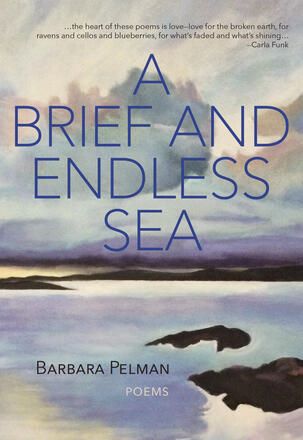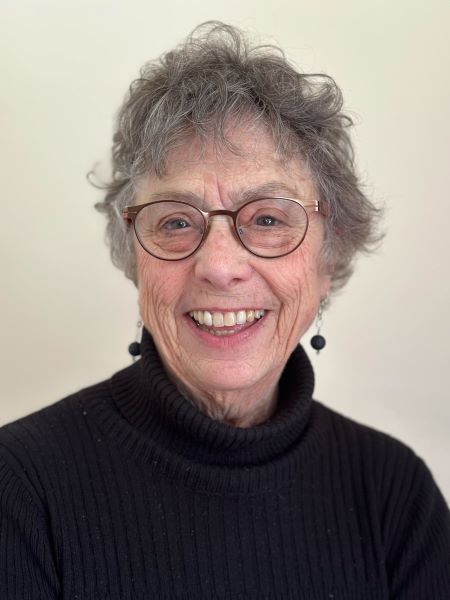 Barbara Pelman is a fine poet. I’ve known that for a long time as Barbara and I first met at a Patrick Lane poetry retreat in Sooke, B.C. in 2006. I’ve had many opportunities to hear several of Barbara’s poems as they were coming to life. Since then Barbara and I have been to many poetry retreats with Patrick who sadly died in March 2019, not long before his 80th birthday, and in more recent years with his fellow poet and partner-in-life Lorna Crozier.
Barbara Pelman is a fine poet. I’ve known that for a long time as Barbara and I first met at a Patrick Lane poetry retreat in Sooke, B.C. in 2006. I’ve had many opportunities to hear several of Barbara’s poems as they were coming to life. Since then Barbara and I have been to many poetry retreats with Patrick who sadly died in March 2019, not long before his 80th birthday, and in more recent years with his fellow poet and partner-in-life Lorna Crozier.
Lorna has given Barbara’s new book, A Brief and Endless Sea (Caitlin Press, 2023), a lovely cover endorsement: “Barbara Pelman writes, ‘And seldom is there comfort,’ yet these poems, reaching back into the past and tentatively touching the future, do comfort the reader with their tenderness, wisdom, and grace.” The beautiful art work on the cover is by Phyllis Serota.
Patrick’s words about remembering the past come to mind from his marvelous memoir, There is a Season: “Without the past I can’t learn to live in the unfolding present. . . While the past can be a burden, it is also a gift out of time. The clear moments of memory must be understood. It is only then they can be let go.”
A Brief and Endless Sea is Barbara’s fifth book of poetry, including a chapbook. She begins this wonderful collection with, as seems most fitting, a cento for Patrick Lane entitled “Now is the Time to Light It.” (A cento is made up of lines from the poems of another poet.) The beautiful tribute begins:
Cleansed in the dark where the dead have come for blessing.
The spirit leaves us slowly, forever.
Everywhere the wind covers your passing.
That last line is repeated throughout the poem like a soft breeze or a fond blessing. In fact, the form the poem has taken is that of a villanelle. This is a form she has never managed to master, Barbara told me, except this time!
While poems can be imagined, we often write about and from our own experience and Barbara has included poems of memories from her life. The poem from which the book’s title is taken is “Wild a Little While” which involves a boy, “well, a man,” on a bus in Hammersmith and later a “bedsit” with “a narrow bed.”
And this is where the imagining in the form of the metaphorical comes in:
I can’t remember, just know
we watched stars from the porthole,
that attic ship that sailed
in a brief and endless sea.
But is it true? Yes, all of it as I note when describing another of Barbara’s poems, below.
I recently wrote a review of Hologram: an Homage to P.K. Page edited by Yvonne Blomer and DC Reid (Caitlin Press, 2023) for the British Columbia Review in which Barbara has two poems, both glosas. P.K. Page was a master of the form and so is Barbara. One of her poems, “Cello,” is included in A Brief and Endless Sea.
The four lines that act as an epigraph to “Cello,” each of which end Barbara’s four ten-line stanzas, are from “In a Field, at Sunset” by Carl Phillips. Usually the four lines are from a longer poem and in this case, the Phillips’ poem is comprised of only those four lines.
“Cello” is a gorgeous glosa about “a boy, in Germany, one summer.” As the speaker says in her final stanza:
… and I try with words
to pull that summer onto the page,
the long days by the river,
his hands, his spine, the curve of his neck,
the way he woke my skin.
When reading a glosa, we know those four borrowed lines have initiated the poem and we anticipate how the poet is going to magically use them. In this case, I wondered, how will Barbara end “Cello“ with the words “and most.” She does it so beautifully, wrapping memories around the given lines and as P.K. Page has been quoted as saying it becomes: “a curious marriage – two sensibilities intermingling.”
 As Barbara wrote in Homage when remembering P.K. Page: “It’s fascinating and challenging to see how the borrowed words can be folded into your own, as seamlessly as possible, as if you had written them yourself. An honouring.”
As Barbara wrote in Homage when remembering P.K. Page: “It’s fascinating and challenging to see how the borrowed words can be folded into your own, as seamlessly as possible, as if you had written them yourself. An honouring.”
There’s another boy in “Notre Dame” and the poem is Barbara’s own version of a pantoum. The pantoum began as improvisational oral poetry and by the fifteenth century had become part of Malayan written literature. Lines are repeated in a particular pattern and are usually exactly the same. Barbara had fun with the improvisational aspect so that each repeated line is slightly altered. A pantoum always begins and ends with the same line. In this case, it’s: “Because of a boy with sad green eyes.”
Poems about a dead father, a mother still alive at 106 (now beyond that as I’m writing this), a daughter, and a grandson, along with a fear of “Dying Alone.” I note that Barbara’s poem “Pleasure” with its reference to “eight thousand nerve endings,” comes “After the Divorce”!
“About Memory” is Section IV of the book and is made up of stanzas with titles taken from talks with Rabbi Henry Brechner during sessions of the Calling All Artists Project in 2019. I love what Barbara has done with the titles which have acted as memory prompts. For instance, “Memories are subjective” begins this way:
My mother remember it like this:
I was standing there, after Sunday School,
and he saw me. I was twelve. Bashert: destiny.
Barbara’s memories in these stanzas include her parents, memories from childhood, and imagined memories. The latter is referred to the stanza: “Is it a real memory? Is it a true memory?”
. . . I wrote poems
about Marcello, and in this way
the story is true.
I shared this seven-part poem, “About Memory,” in the Writing Life women’s writing circle recently and suggested we use some of Barbara’s stanza titles to prompt some of our own memories. I got thinking of a woman I met on the island of Crete and continued the interaction in my imagination. I’d like to end as Barbara did with her stanza about Marcello: “Did it happen? Is it real? It is true.”
Some poems are an invitation to write your own as with “About Memory” and I was also intrigued by “Self-Portrait Around the House” which has stanza headings: Garden, Kitchen, Bedroom, and Office. In this self-portrait, the speaker has a pink tea rose called “Poet’s Wife” in her garden and in her office: “Morning and evening she types out her poems . . . “
Barbara has written some wonderful glosas besides “Cello” noted above. There’s “Blueberries” with four lines from “Laura Apol’s “Blueberries, (Laura is one of our poet friends who also leads poetry retreats); “Blueberry Creek” with four lines from “Inversnaid” by Gerard Manley Hopkins; and “Feast on Your Life’ inspired by Derek Walcott’s “Love After Love,” as well as “Nevertheless” with four lines from “Thanks” by W.S. Merwin. The latter poem won the Malahat Review Poetry Contest in 2018.
Such a beautiful collection to savour and when poems inspire us to recall our own memories and begin our own poems, that’s a very good thing.
You can order Barbara’s book, A Brief and Endless Sea, directly from Caitlin Press on Vancouver Island or ask for it at your favourite indie bookstore. I recommend that you do!
[Barbara’s photo above is by Jackie Saunders-Ritchie.]
